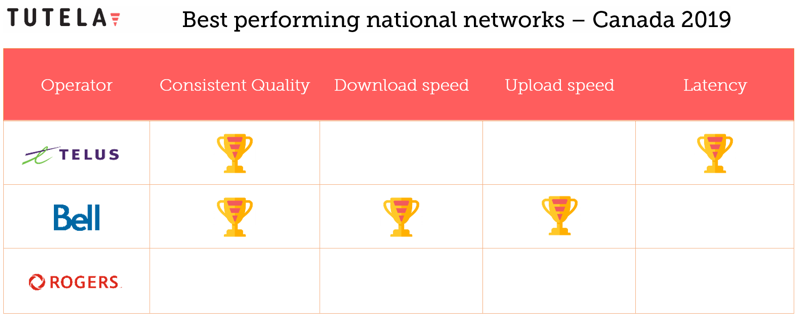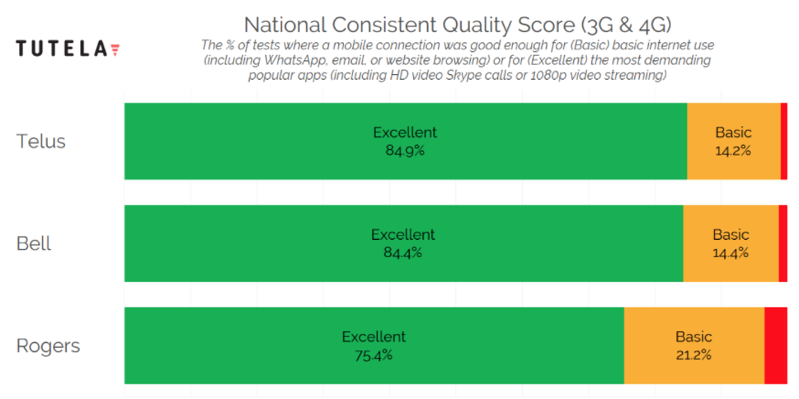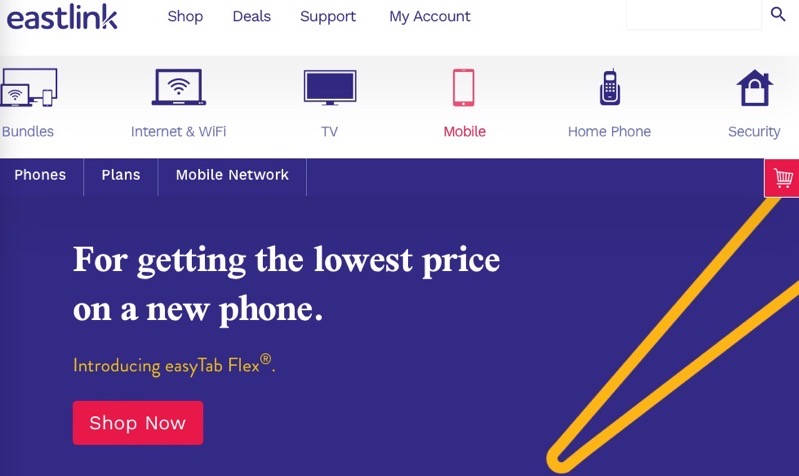
Bell and Telus Tie in Wireless Network Quality to Rank Above Rogers Says Report [u]

According to Victoria-based company, Tutela, their mobile network quality tests have concluded Bell and Telus are identical in offering Canadians the fastest mobile speeds in Canada, just slightly edging out Rogers.
The company’s report, titled “State of Mobile Networks March 2019”, details findings based on over 1.8 billion records from more than 1 million handsets over 6 months in Canada, says Tutela.
Bell and Telus “deliver virtually identical consistent quality to their customers,” explains the company, while “Rogers’ consistent quality is 10% lower, meaning that one time out of 10, a Bell or Telus customer can conduct a FaceTime call or stream HD video when a Rogers customer cannot.”
Update: revision as per Tutela regarding Rogers below:
“Across the whole country, Rogers’ excellent consistent quality score was nine percentage points lower than the other two national operators. Overall, in one out of four tests, Rogers customers’ network connection did not meet Tutela’s threshold for excellent consistent quality, which may translate to an inferior experience with demanding use-cases like HD video streaming and real-time group video calling.”
Tutela’s report, shared with iPhone in Canada, says “when it comes to overall basic consistent quality—making a voice call, web browsing, or checking email—Rogers is almost as good as Bell or Telus.”

When it comes to advantages in specific provinces, Tutela says Rogers edged out its competitors in Saskatchewan, Bell in PEI, while Telus took the lead in Manitoba and Newfoundland and Labrador.
Average download speeds when it comes to 3G and 4G of a 2MB file size, saw Bell average 27 Mbps, Telus at 23.3 Mbps and Rogers at 14.8 Mbps.
As for prepaid providers of the Big 3, Tutela says “you really do get what you pay for”, citing with Lucky Mobile, Public Mobile and Chatr, web browsing was fine, but their report says “users are unable to reliably make video calls, stream Youtube or watch Netflix.”
Tutela says they utilize crowdsourcing “to test mobile networks in a way that represents the day-to-day usage and experience of real-world mobile users, directly from the users’ handsets.”
Their software runs in the background of “over 3,000 diverse third-party mobile apps, which have partnered with Tutela to study network quality.” Tutela’s 1.8 billion measurements were taken from August 1, 2018 to January 31, 2019.
At the end of the day, the wireless networks in Canada are pretty good for basic web browsing and accessing social media networks. Most people I know rarely stream Netflix or YouTube all day over LTE due to limited data buckets and expensive overages (unless you’ve got money bags like Uncle Scrooge).

